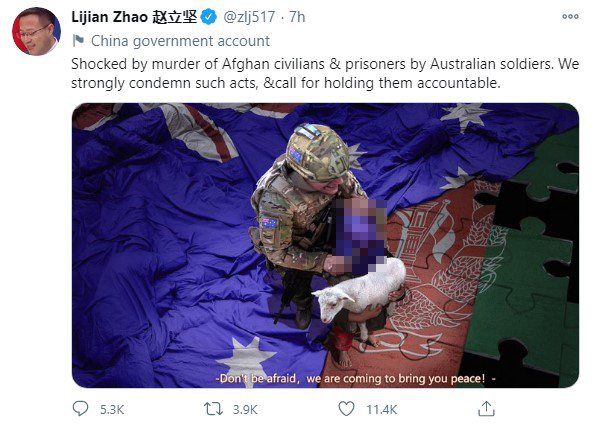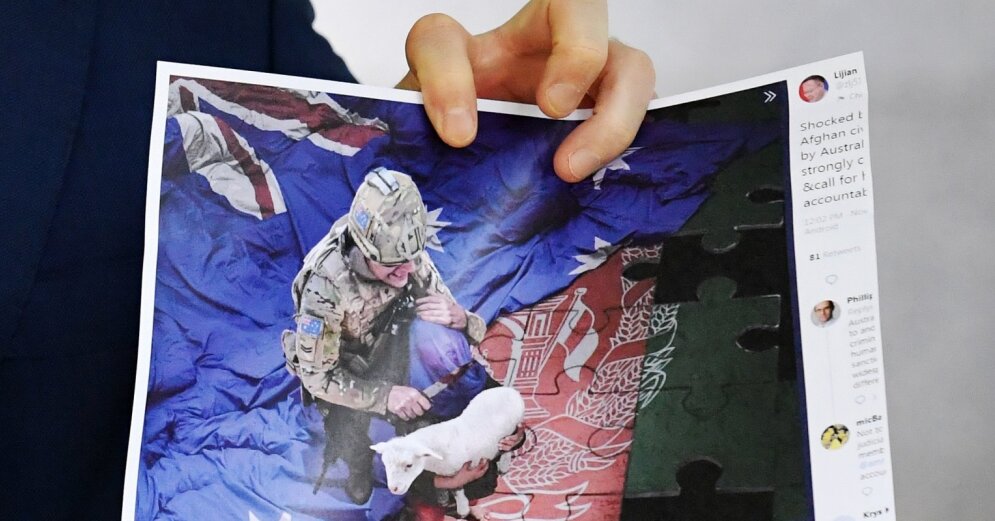Content will continue after the ad
Advertising
–
China’s actions were in response to a recent report containing several Australian soldiers accused of war crimes in Afghanistan. The Australian Defense Forces said it had obtained reliable information about the involvement of 25 soldiers in the killing of 39 Afghan civilians between 2009 and 2013.
Monday, November 30 China joined the condemnation of the actions of Australian soldiers, accompanied by a staged photograph in which the soldier is cut off the throat of an Afghan child. The publication of this photo caused deep outrage in Canberra.
Australian Prime Minister Scott Morrison condemned Beijing’s actions, saying China should be ashamed of publishing a “disgusting” image and apologize to Australia. China’s move was also condemned by New Zealand’s Prime Minister Jacind Ardern, who is neighboring Australia.

China did not owe a response. On Tuesday, December 1, the Chinese Embassy in Australia addressed Morrison with an insult rather than an apology. The statement said that the prime minister’s actions are intended to divert public attention from the atrocities committed by certain Australian soldiers, as well as to blame Beijing for the deterioration of bilateral relations between the two countries. The embassy adds that there could be a third reason to awaken nationalism in Australia.
“Our advice to Australia is not to avoid the crimes committed by Australian soldiers in Afghanistan, to bring those responsible to justice and to bring justice to the victims,” the embassy said in a statement.
Australia-China relations have deteriorated sharply this year since Canberra called for an investigation into the origins of the Covid-19 pandemic. Two months ago, on the recommendation of diplomats, the last two correspondents working for the Australian media were evacuated, recalls the BBC.
Recently, two Australian academics were denied entry to China.
In Australia, there are also ongoing discussions about China’s interference in its internal affairs and growing tensions in the economic field, with China applying tariffs on Australian goods, including 200% on Australian wines.
–
